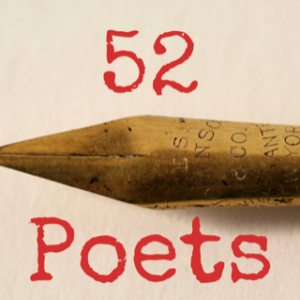
John Milton (1608-1674) was an English poet, writer and civil servant whose epic poem, Paradise Lost, can be counted among the greatest poems in the English language. Milton was a renowned intellectual, writing in English, Latin and Italian, and achieving global recognition during his lifetime.
If Milton tried to write today some of the things he wrote in the seventeenth century, there would, quite rightly, be an outcry. In both Paradise Lost and Samson Agonistes, he portrays women as weak, fickle and a dangerous distraction to men. In fact, Milton himself was a champion of freedom of speech and freedom of the press, attacking pre-printing censorship in Areopagitica.
There is more to Milton, however, than his portrayal of Eve and Dalila. His desire for freedom, his republican views and his willingness to battle for his beliefs meant he was initially considered radical, but, during his lifetime, he contributed to shifts in attitudes which eventually resulted in his elevation to public office. Additionally, but in my view just as importantly, his writing is magnificent. It was the power of his writing that led me to take a big risk and choose him as a subject for one of my undergraduate dissertations. A big risk because he is such a huge literary figure. Most of what can be said about Milton, it could be argued, has been said already. We were advised to choose lesser-known writers as our dissertation subjects so we could show some originality and research skills. I dug my heels in. Choosing Milton probably cost me a First, because one of the examiners who read my dissertation really liked it and the other really didn’t.
Milton is best known for Paradise Lost, which tells the story of the Fall of Man: the temptation of Adam and Eve by Satan and their banishment from the Garden of Eden, as told in the Book of Genesis in the Bible. I first came across this text when I had to study Books IX and X for A Level, and then of course had to read the whole thing during my degree. I fell in love with the majesty of the heroic verse, the long, complex sentences and the powerful language. When Milton needed a word, if it didn’t exist, he made it up. For example, in Paradise Lost the capital of hell is ‘Pandemonium.’ Milton coined this word from the Greek prefix ‘pan-‘ meaning ‘whole of’ or ‘universality,’ and the Latin ‘daemonium,’ meaning demon or spirit. The word, therefore, literally means the place of all demons. It is commonly used now to mean noisy disorder or confusion.
Milton lost his sight and continued to write by dictating to his daughters. By all accounts, he didn’t treat them too well. (His relationship with their mother had been quite troubled, also.) The anguish caused by his blindness, and his obsession with light, can be seen in Paradise Lost:
Hail holy Light, offspring of heaven first-born,
Or of the eternal co-eternal beam
May I express thee unblamed? (PL, Book III)
However, it was in Samson Agonistes, a dramatic poem about Samson and Dalila from the Book of Judges in the Bible, that Milton was able to explore the issue of blindness in more depth. This text was the subject of my undergraduate dissertation and I have always remembered these sad lines:
The Sun to me is dark
And silent as the Moon,
When she deserts the night
Hid in her vacant interlunar cave.
Samson struggles with his loss of strength (as his strength was in his hair which Dalila cut off), his imprisonment and his mental anguish. Here, he complains that suffering is not confined to the body, but manages to affect the mind as well:
Oh, that torment should not be confined
To the body’s wounds and sores,
With maladies innumerable
In heart, head, breast, and reins,
But must secret passage find
To the inmost mind…
Despite his anger with Dalila, he forgives her ‘at distance’ and eventually goes on to die a hero, as his hair has begun to grow back, his strength returned, and pulled the temple down upon himself and the Philistines. His father, Manoa, says:
Samson hath quit himself
Like Samson, and heroicly (sic) hath finished
A life heroic, on his enemies
Fully revenged…
We also see Milton mourning his lost sight in the sonnet, When I Consider How my Light is Spent, which ends with the famous line, They also serve who only stand and wait. Here, he is considering how he can serve God without his sight. Even in the sonnet, Methought I Saw My Late Espoused Saint, in which he recounts dreaming of his dead wife and waking up to the reality that she is dead and he is blind, the ‘night’ of his blindness seems to be the final blow:
I wak’d, she fled, and day brought back my night.
If I have piqued your interest, this post gives some suggestions for further reading. Let me know what you think!